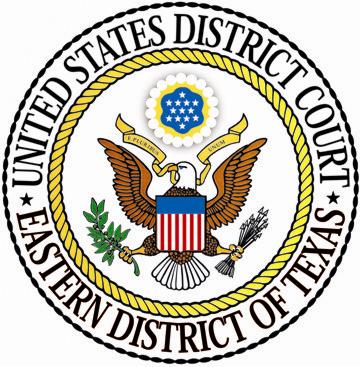Harper & Bates Earns Three Best Law Firm Rankings
Harper & Bates is pleased to announce that it has earned three rankings in the 2023 “Best Law Firm” rankings from U.S. News & World Report Best Lawyers.In the Dallas market,…
Continue reading » Judge Amos Mazzant of the Eastern District of Texas recently became one of the first federal judges to award treble damages for willful patent infringement under the new Supreme Court standard for enhanced damages laid out in Halo Electronics, Inc. v. Pulse Electronics, Inc. Judge Mazzant, citing Halo, enhanced the jury's $7 million award in IP Holdings (Cayman), Ltd. v. Samsung Electronics Co., Ltd. to the maximum extent allowed under 35 U.S.C. § 284, resulting in a $21 million hit to Samsung.
Judge Amos Mazzant of the Eastern District of Texas recently became one of the first federal judges to award treble damages for willful patent infringement under the new Supreme Court standard for enhanced damages laid out in Halo Electronics, Inc. v. Pulse Electronics, Inc. Judge Mazzant, citing Halo, enhanced the jury's $7 million award in IP Holdings (Cayman), Ltd. v. Samsung Electronics Co., Ltd. to the maximum extent allowed under 35 U.S.C. § 284, resulting in a $21 million hit to Samsung.
In Halo, which was decided in June 2016 after the jury returned its verdict in IP Holdings but before Judge Mazzant's final judgment, the Supreme Court relaxed the standard for assessing enhanced damages for willful patent infringement, finding the Federal Circuit's two-part Seagate test inconsistent with § 284. The Seagate test required a patent owner to show: (1) the infringer acted despite an objectively high likelihood its actions constituted infringement of a patent; and (2) the risk of infringement was either known or so obvious it should have been known to the accused infringer. Each step required clear and convincing evidence. The Supreme Court rejected this approach in Halo, holding the subjective willfulness of a patent infringer may warrant enhanced damages without regard to whether infringement was objectively reckless. The new framework for enhanced damages thus recognizes it is within the district court's discretion—with a focus on "egregious infringement behavior"—to award enhanced damages, free from the inelastic constraints of the Seagate test. The Supreme Court also dropped the clear and convincing standard to a preponderance of the evidence standard.
Judge Mazzant, in applying the new standard, cited testimony regarding allegations of Samsung's copying the patent owner's ideas, evidence regarding Samsung's lack of tracking the patent owner's patent portfolio despite having knowledge of its patents, "multiple material misrepresentations under oath", and failure to produce relevant documents as evidence to support his trebling of the jury's award. He then exercised his discretion and enhanced the jury's damage award from $7 million to $21 million—the maximum extent allowed under § 284.
The Eastern District of Texas is the country’s busiest patent docket, providing a grandstand for national visibility of Mazzant’s decision. It is possible this decision will shape how willful infringement awards are handled in the Eastern District of Texas for the foreseeable future. As such, patent owners and accused infringer alike should take note of the IP Holdings case, recognizing the stakes have been raised for all.
Harper & Bates is pleased to announce that it has earned three rankings in the 2023 “Best Law Firm” rankings from U.S. News & World Report Best Lawyers.In the Dallas market,…
Continue reading »Harper & Bates is pleased to announce that it has earned three rankings in the 2022 “Best Law Firm” rankings from U.S. News & World Report Best Lawyers.In the Dallas market,…
Continue reading »